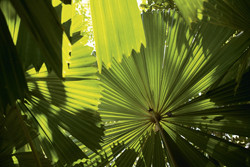Sustainable management of tropical forests
Tropical forests contain a huge variety of useful plants that are not well understood by science. Palm species can serve as a proxy to enable researchers to investigate regional biological diversity and the effect of harvesting on biodiversity and ecosystems. The EU-funded 'Palm harvest impacts in tropical forests' (PALMS)(opens in new window) project was established to investigate the impact of removing trees and/or fruit from forests in north-western South America. This area includes parts of the countries of Bolivia, Colombia, Ecuador and Peru. Researchers from Europe and South America studied useful palm species to discover how their harvesting and trading contributes to the loss of genetic material from wild populations. Scientists also employed advanced molecular biology methods to determine palm diversity. Interviews with local people revealed that hundreds of palm species are used for thousands of different purposes. This information, together with economic, management and policy data, was subjected to sophisticated statistical analysis. Project findings were shared with local advisory committees from all four participating South American nations, who made suggestions for improving the work. Project results give an indication of the level of human extraction of palm products from the study area and an estimated impact on the tropical forest ecosystem. It was also found that the legal framework for harvesting and commercialising palm products was complex and poorly understood. The success of the PALMS project has helped to protect and conserve the palms and biodiversity of the tropical forest in north-western South America. This was achieved by providing alternatives to unsustainable management practices and improving local government regulation of the use and trade of palm resources. It has also contributed to national policies for the extraction, harvesting, trade and commercialisation of palm products. PALMS provided a new approach for evaluating ecosystem diversity and resilience and developed criteria and indicators. This will facilitate the sustainable management of biodiverse tropical forests both in South America and around the globe.







